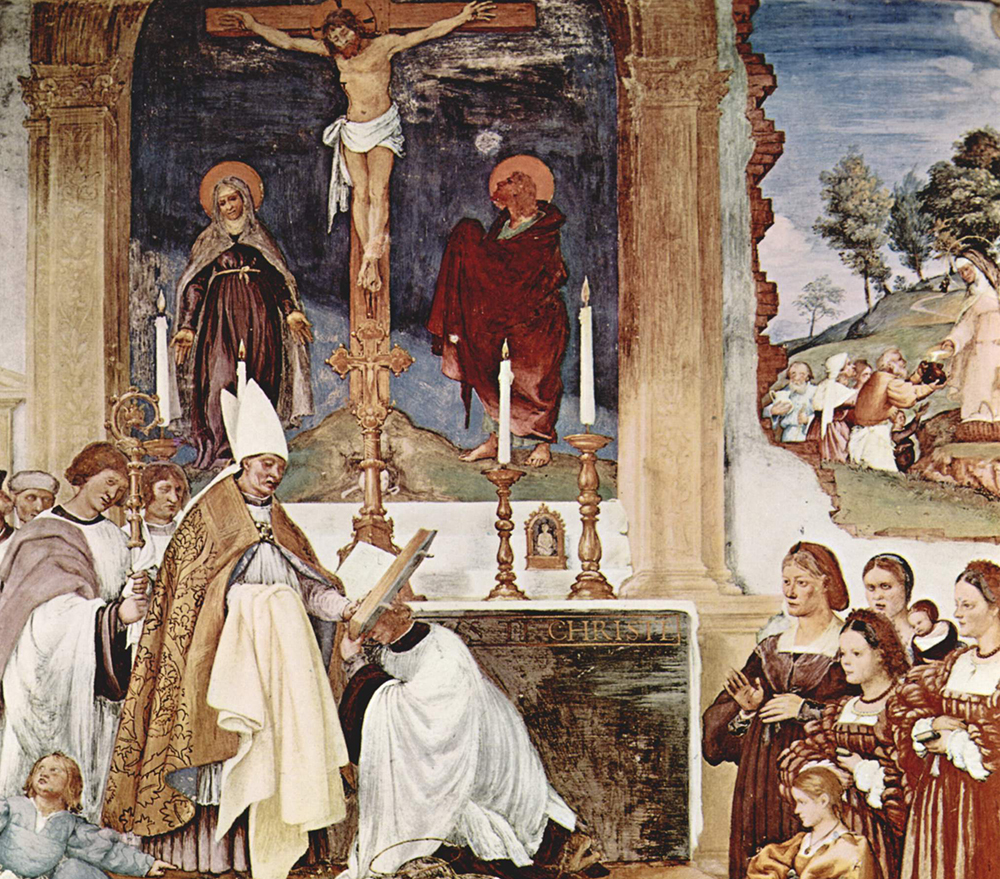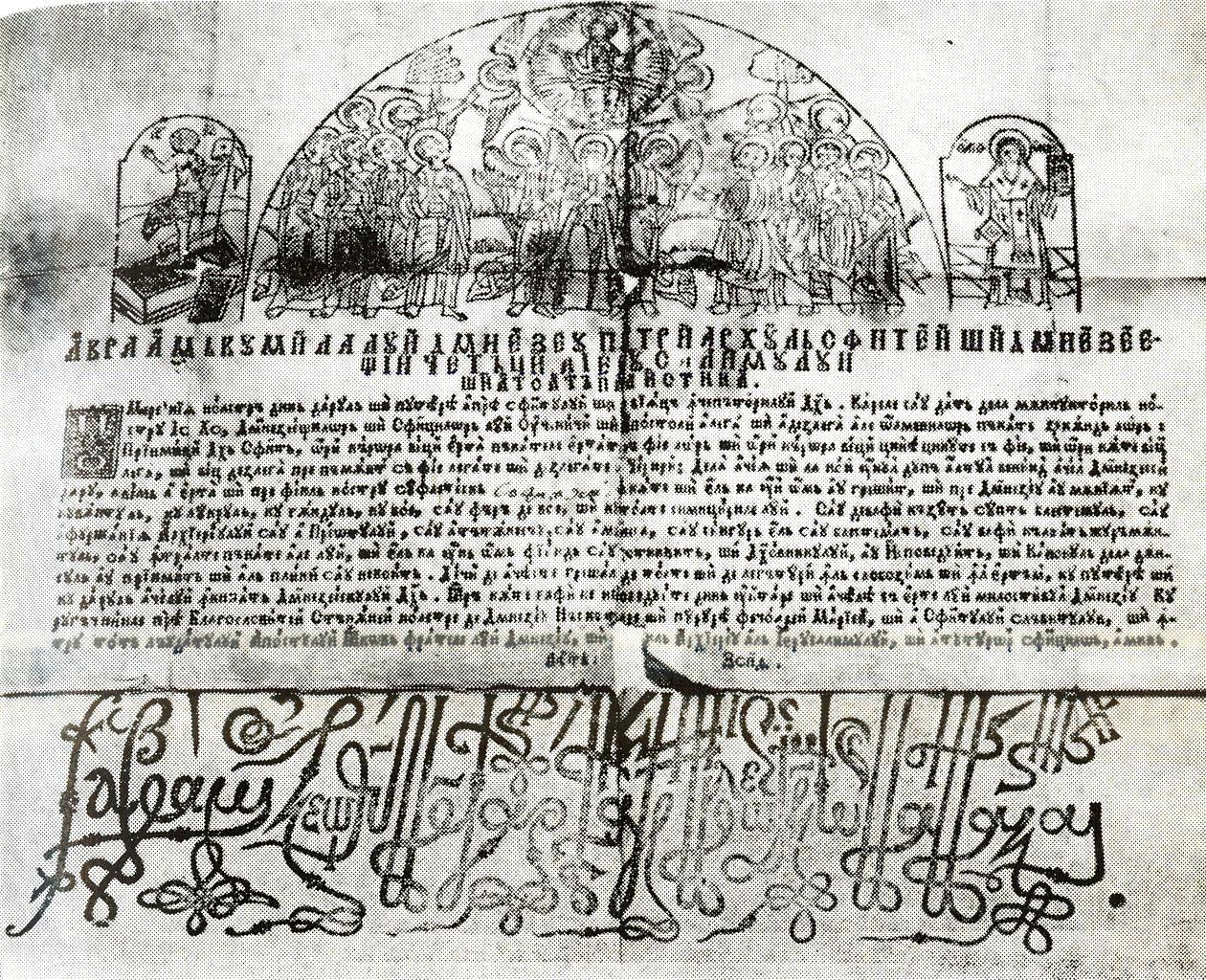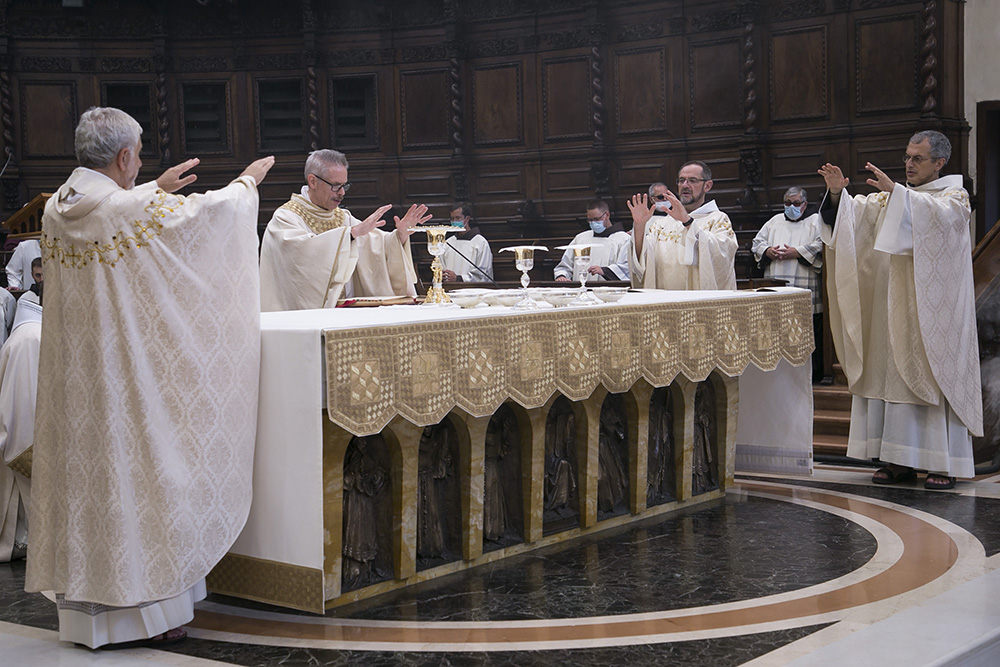The Catholic Church has a long and complex history of indulgences, which have been a source of controversy and misunderstanding for centuries. Indulgences are a form of remission for the temporal punishment due to sin, which can be obtained through certain prayers, good works, or oter forms of devotion. While the concept of indulgences has been a part of Catholic teaching for centuries, the sale of indulgences has been a point of contention, with many people believing that the Catholic Church still sells indulgences.
However, the truth is that the Catholic Church does not now nor has it ever approved the sale of indulgences. In fact, the sale of indulgences was officially condemned by the Council of Trent in the 16th century, and the practice has been abolished ever since. The Church recognizes that the sale of indulgences was a corruption of the original idea and was a source of scandal and abuse.
Today, the Catholic Church recognizes two types of indulgences: plenary and partial. A partial indulgence is one that partially frees from the punishment due for sins, while a plenary indulgence totally frees from the punishment due for sins. These indulgences can be obtained through various devotions, such as praying the Rosary, making a pilgrimage to a holy site, or performing works of mercy.
It is important to note that indulgences are not a way to buy forgiveness or to escape the consequences of sin. Rather, they are a way to deepen one’s spiritual life and to grow in holiness. Indulgences are not automatic or guaranteed, but are granted by the Church under certain conditions, such as making a good confession, receiving the Eucharist, and praying for the intentions of the Pope.
While the history of indulgences is complex and at times controversial, it is clear that the Catholic Church does not sell indulgences. The Church recognizes the importance of indulgences as a way to deepen one’s spiritual life and to grow in holiness, but also recognizes the need to guard against abuses and misunderstandings. As Catholics, we are called to seek indulgences not as a way to escape punishment, but as a way to draw closer to God and to live more fully the life of faith.
Do Catholic Churches Still Offer Indulgences?
The Catholic Church still offers indulgences. According to section 1471 of the Catechism of the Catholic Church, the benefit of indulgences is available “under certain conditions through the action of the church.” The Church continues to offer indulgences as a way for the faithful to obtain remission of temporal punishment for sin, either for themselves or for the souls in purgatory. While the sale of indulgences is no longer permitted, the Church still grants them through various means, such as prayer, pilgrimage, and acts of charity. The Church also emphasizes that indulgences are not a way to “buy” forgiveness, but rater a way to deepen one’s spiritual life and commitment to God.

The Cost of a Catholic Indulgence
During the Middle Ages, the Catholic Church offered indulgences as a way to reduce the amount of punishment one would receive in Purgatory for their sins. The cost of an indulgence varied depending on the individual’s social status. For example, Kings, queens, and archbishops would pay 25 gold florins for an indulgence, while merchants would pay three florins, and the poorest of believers would pay just one quarter florin. It is important to note that the sale of indulgences was a controversial practice that was eventually abolished by the Catholic Church during the Reformation.
Do Modern Day Indulgences Exist?
People do not sell indulgences today. The sale of indulgences was a practice in the Catholic Church during the Middle Ages, where people could purchase forgiveness for their sins or the sins of their deceased loved ones. This practice was abolished by the Catholic Church in the 16th century during the Reformation. Today, the Catholic Church offers the opportunity to receive indulgences through prayers, good works, and acts of charity, but they cannot be purchased or sold. The Catholic Church has strict guidelines for receiving indulgences, and they are only granted uder specific circumstances, such as attending Mass, visiting a cemetery, or making a pilgrimage to a holy site. Therefore, it is important to note that the sale of indulgences is not a current practice in the Catholic Church.
Types of Indulgences in the Catholic Church
In the Catholic Church, there are two types of indulgences available: partial and plenary. A partial indulgence is a remission of a portion of the temporal punishment due for sins, whie a plenary indulgence is a complete remission of all temporal punishment due for sins.
To obtain a partial indulgence, one must perform a good work or act of piety, such as saying a prayer or making a charitable donation, with a contrite heart and with the intention of receiving the indulgence. The Church grants partial indulgences for a wide variety of actions, such as visiting a sick person, performing spiritual works of mercy, or devoutly reading Sacred Scripture.
To obtain a plenary indulgence, in addition to performing the prescribed good work or act of piety, one must also fulfill certain conditions, including sacramental confession, Eucharistic communion, and praying for the intentions of the Pope. This type of indulgence is more difficult to obtain but is a more complete remission of temporal punishment due for sins.
It is important to note that indulgences do not forgive sins; only the Sacrament of Reconciliation can absolve one of sins. Indulgences are a way for the Church to offer spiritual assistance to the faithful, encouraging them to grow in holiness and charity.
The Date of the Last Indulgence Sale
The last indulgence was sold in 1567. The sale of indulgences was outlawed by the church after this date. However, it is worth noting that indulgences are not something that can be bought, but rather earned through charitable contributions and other acts of piety.

Source: brewminate.com
Examples of Catholic Indulgences
Catholic indulgences are acts of grace offered by the Catholic Church to reduce the amount of temporal punishment a person might have to undergo for thir sins. These indulgences are granted through various pious acts such as prayer, charity, or pilgrimage.
One example of a Catholic indulgence is the plenary indulgence, which is the complete remission of all temporal punishment due to sin. To obtain a plenary indulgence, one must perform certain acts such as making a pilgrimage to a designated holy site or spending time in prayer and reflection. Other examples of Catholic indulgences include the partial indulgence, which reduces the amount of temporal punishment due to sin, and the indulgence of the Holy Year, which is granted during special years designated by the Pope.
There are also indulgences associated with specific days or events, such as the Divine Mercy Sunday indulgence, which is granted to those who participate in the designated liturgical activities on that day. Additionally, there are indulgences granted for acts of charity, such as visiting the sick or performing works of mercy for the poor.
Catholic indulgences serve as a reminder of the importance of repentance and the need to strive for holiness. By performing these pious acts, Catholics can seek forgiveness for their sins and work towards a closer relationship with God.
Does a Plenary Indulgence Forgive All Sins?
A plenary indulgence is a form of remission of temporal punishment for sins that have already been forgiven though the sacrament of confession. It is important to note that a plenary indulgence does not forgive sins. Rather, it removes all of the temporal punishment due to sin. This means that while the guilt of sin may be forgiven, the consequences or effects of that sin still remain. It is the removal of these consequences that is achieved through a plenary indulgence. However, for a plenary indulgence to be granted, certain conditions must be met, including the confession of sins, reception of Holy Communion, and prayers for the intentions of the Pope.
Conditions for Receiving a Plenary Indulgence
A plenary indulgence is a remission of all temporal punishment due to sin. In order to obtain it, there are four conditions that must be met.
Firstly, the faithful must be in a state of grace, meaning they are free from mortal sin. This can be achieved through the sacrament of confession.
Secondly, one must have a complete detachment from sin, even venial sin. This means that the individual must have a sincere and genuine desire to turn away from all sin and strive to live a holy life.
Thirdly, the individual must receive the Holy Eucharist. It is recommended that this be done while participating in Holy Mass, but it is not strictly necessary.
The individual must pray for the intentions of the Pope. This can be done by reciting one Our Father and one Hail Mary or any other prayer of their choosing.
It is important to note that these conditions must be met for each plenary indulgence sought. Additionally, partial indulgences may also be obtained for certin prayers, acts of charity, or other pious acts.
Obtaining Catholic Indulgences
Catholic indulgences are granted by the Church and can be obtained through certain actions and prayers. In order to receive an indulgence, one must first be in a state of grace, meaning they must have gone to confession and been absolved of their sins. The second condition is to receive Holy Communion, which should be done within a few days before or aftr performing the act for which the indulgence is sought.
The third condition is to offer prayers for the intentions of the Holy Father. This can be done by praying an Our Father, Hail Mary, or other prayer of one’s choosing. The specific intentions of the Holy Father can be found on the Vatican website or in a Catholic prayer book.
The fourth condition is to perform the act for which the indulgence is sought. This can include visiting a church or shrine, performing a work of charity, or reading and meditating on scripture for a certain amount of time. The specific requirements for each indulgence can vary, so it is important to consult a Catholic prayer book or speak to a priest to ensure the proper conditions are met.
It is also important to note that indulgences are not a means of “buying” forgiveness or salvation. Rather, they are a way for the faithful to deepen their spiritual life and grow closer to God.

The Impact of Indulgences Sales on the Catholic Church
Johann Tetzel, a German Dominican friar, is known for selling the most indulgences during the 16th century. He was commissioned by the Catholic Church to travel throughout Germany and sell indulgences to raise funds for the construction of St. Peter’s Basilica in Rome. Tetzel was known for his powerful sermons and persuasive rhetoric, whch convinced many people to purchase indulgences in order to reduce their time in purgatory. However, his tactics were controversial and sparked widespread criticism, including from Martin Luther, who famously objected to the sale of indulgences in his Ninety-Five Theses. Despite the controversy, Tetzel’s sales of indulgences are estimated to have been in the millions, making him one of the most successful salesmen of indulgences in history.
Selling of Indulgences by Famous Person
One of the most well-known figures associated with the sale of indulgences was Johann Tetzel, a German Dominican friar who lived in the 15th and 16th centuries. Tetzel was appointed by Pope Leo X to preach and sell indulgences in several German dioceses, including Meissen, Magdeburg, and Halberstadt. He beame particularly famous for his aggressive and persuasive preaching style, which emphasized the benefits of obtaining an indulgence, such as the forgiveness of sins and the release of loved ones from purgatory. However, Tetzel’s activities were controversial and drew criticism from many quarters, including from prominent leaders of the Protestant Reformation such as Martin Luther, who saw the sale of indulgences as a corrupt practice that undermined the true meaning of Christian faith. Despite this opposition, Tetzel continued to promote indulgences until his death in 1519.
The Indulgence of Praying the Rosary
Praying the rosary can be considered an indulgence. An indulgence is a remission of the temporal punishment due to sin, which can either be partial or plenary depending on the conditions set by the Church. When the rosary is recited in a church or oratory, or in a family, religious community, or pious association, a plenary indulgence is granted. On the other hand, a partial indulgence is given for its recitation in all other circumstances. However, it’s important to note that the act of praying the rosary itself is not the indulgence but rther the means by which one can obtain it.
Exploring the Concept of a 100 Day Indulgence
A 100-day indulgence is a term used in the Catholic Church to dscribe a remittance of temporal punishment for sins that have already been forgiven. In other words, it is a way to reduce the amount of time a person would spend in purgatory for their sins. The concept of indulgences dates back to the early church and was developed as a way to encourage acts of piety and good works.
A 100-day indulgence means that the person who receives it will have their earthly penance reduced by 100 days. In the early and medieval church, penances were often very severe and could last for years. For example, a sinner might be required to eat nothing but bread and water or wear sackcloth for months.
It’s important to note that indulgences are not a “get out of jail free” card for sinners. The Catholic Church teaches that a person must first confess their sins and receive absolution from a priest before an indulgence can be granted. Additionally, indulgences are only granted for specific acts of piety or charity, such as visiting a sick person or making a donation to a charitable organization.
A 100-day indulgence is a remittance of temporal punishment for sins that have already been forgiven. It is a way to reduce the amount of time a person would spend in purgatory for their sins. Indulgences are only granted for specific acts of piety or charity and are not a substitute for confession and absolution from a priest.

Number of Plenary Indulgences Per Day
According to the teachings of the Catholic Church, it is possibe to gain a plenary indulgence once a day. This means that a person can receive the full remission of the temporal punishment for their sins, granted by the Church, only once a day. However, it is important to note that there are specific conditions that must be met in order to obtain a plenary indulgence, such as being in a state of grace, making a confession, receiving Communion, praying for the intentions of the Pope, and performing the prescribed works of piety or charity. Therefore, while it is possible to obtain a plenary indulgence once a day, it requires careful and intentional practice of the Catholic faith.
Conclusion
The Catholic Church is a complex institution with a rich history and many traditions. While it has faced controversy and criticism over the years, it remains an important religious organization with millions of followers around the world. The Church’s teachings on indulgences have evolved over time, and today it does not condone the sale of indulgences. Instead, it offers plenary and partial indulgences as a way for believers to obtain spiritual benefits and forgiveness for their sins. Whether one agrees with the Church’s teachings or not, its impact on the world cannot be denied, and it will continue to play an important role in shaping the beliefs and practices of its followers for generations to come.
